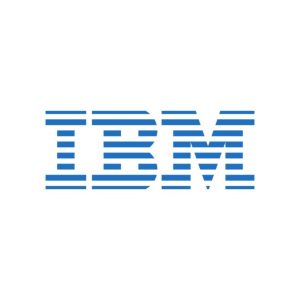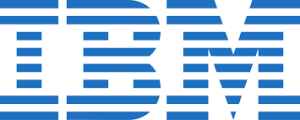- All
- Favorite
- Popular
- Most rated

Continuous Integration and Continuous Deployment/Delivery Models – Hybrid
In this course, you should learn about the advantages of migrating from a traditional mainframe architecture to a hybrid model.

IBM Cloud Integration Use Cases
This course explores use cases for integration on IBM Cloud®, including API Connect, APP Connect, IBM Messaging Options, IBM Event Streams, and IBM MQ.

IBM Cloud Security Services
In this course, you will review how to apply security compliance using various IBM Cloud® security services.

IBM Cloud for VMware – Regulated Workloads
The IBM Cloud for VMware Regulated Workloads is an extension of the VMware vCenter Server offering.

Troubleshoot Problems Caused by Storage
This course explores techniques related to troubleshooting block storage issues.

Account Security
This course explains the threats associated with cloud-based solutions and explores how IBM Cloud® security features and other network protocols can be used to mitigate these threats.

Cloud Services and DevSecOps
This course reviews and contrasts the differences between DevOps and DevSecOps. Continuous Delivery is also explained.

IBM Cloud Satellite Essentials
This achievement is a stepping stone to earning the IBM Cloud Satellite certification.

Implementing and Managing Backup and Recovery
This course introduces IBM Cloud Backup Services, and data recovery and restoration services, along with how to properly manage data integrity.

Creating an ORR Checklist
This exercise takes the learner through a scenario on creating an ORR checklist and tests their knowledge on non-technical and technical guidelines.

IBM Cloud AI-Ready Infrastructure: watsonx Services on IBM Cloud
In this course, you will learn about generative AI solutions and deploying them on IBM Cloud. Additionally, you will learn about watsonx services and applications on IBM Cloud.

Introduction to the IBM Power Virtual Server Specialty
This course introduces learners to the curriculum and provides an overview of the courses and objectives included in the curriculum.

Implementing Encryption Models
This course describes how to implement data protection and encryption models on IBM Cloud.

Performing the Post-incident Review
This course describes how to perform a post-incident review.

IBM Cloud Service Models: IaaS, PaaS, and FaaS
This course discusses the four infrastructure types that SREs should be familiar with when working on the cloud platform.

Architectural Overview: IBM Power System Virtual Servers
This course introduces the capabilities of IBM Power Systems Virtual Servers.

Continuous Integration and Continuous Delivery
In this course, you should learn about toolchains, toolchain templates, IBM Cloud® tools in toolchains, delivery pipelines, and open source tools in toolchains.

Cloud Native Connectivity Options
In this course, you will explore the aspects of IBM cloud-native network topology.

Capabilities of Database Services on IBM Cloud
This course introduces Database Services on IBM Cloud.

Measuring DevSecOps
This course reviews the steps for working with DevOps Insights, the tasks for integration with a CD pipeline, and how DevOps Insights help measure development, deployment, and operations.

Industry Compliance Standards for IBM Cloud
This course provides information on industry compliance standards for IBM Cloud.

IBM Cloud Associate SRE Flash Card/Study Guide Study Preparation
The IBM Cloud Associate Site Reliability Engineer (SRE) study preparation flash cards and study guides provide another method to help the learner study for the certification examination.

Business Continuity Planning for Power Virtual Server
This course explores the components included in business continuity planning for Power Virtual Server infrastructure. It focuses on identifying and differentiating between available backup methods.

Overview of Resiliency for the Workload
This course introduces the concept of high availability services to promote resiliency for the workload.
The Founding of IBM and Its Evolution Over the Years
IBM’s roots trace back to the early 20th century, when it was initially founded as the Computing-Tabulating-Recording Company (CTR) in 1911 through the merger of three companies that manufactured various devices, including punch card machines and time-keeping equipment. In 1924, the company adopted the name International Business Machines, which aligned with its ambitions to lead the global market in technological solutions. During the 1930s and 1940s, IBM expanded its influence by introducing automated tabulation machines, which became essential tools for businesses and governments. IBM’s success continued with its innovations in mainframe computers in the 1950s and 1960s, which solidified the company’s position as a leader in computing technology. The IBM 701, released in 1952, was the company’s first large-scale electronic computer, and it marked the beginning of IBM’s dominance in the mainframe market.IBM’s Notable Milestones
Throughout its history, IBM has consistently been a leader in groundbreaking technology. Some of the company’s most notable milestones include:- 1964: The launch of the IBM System/360, a family of mainframe computers that could be used for a wide variety of tasks. This innovation was a turning point in the computing industry, allowing businesses to invest in technology that could grow and adapt with their needs.
- 1997: IBM’s Deep Blue, a chess-playing computer, made history by defeating world chess champion Garry Kasparov, showcasing the potential of artificial intelligence.
- 2011: IBM’s AI-powered system, Watson, won Jeopardy! against human champions, further cementing IBM’s leadership in AI research and development.
- 2016: IBM became one of the first companies to provide cloud services with its IBM Cloud platform, which today remains one of the most widely used enterprise cloud platforms worldwide.
- 2020: IBM advanced its quantum computing efforts by launching the IBM Quantum Experience, a cloud-based platform that allows researchers and developers to access quantum computers.
IBM’s Educational Offerings and Certifications
IBM’s dedication to education is evident in the wide range of courses it offers across multiple domains of technology. The company’s IBM Skills Academy is an industry-leading educational platform that provides learners with in-demand skills. IBM’s courses on EdCroma include specialized training in:- Data Science: Master the fundamentals and advanced techniques of data analytics, machine learning, and AI.
- Cloud Computing: Learn to develop and manage cloud infrastructure using IBM Cloud and other industry-leading tools.
- Blockchain: Gain expertise in blockchain development and its applications in finance, supply chain, and cybersecurity.
- Cybersecurity: Learn about the latest threats and how to defend against them, leveraging IBM’s extensive experience in securing enterprise-level systems.
- Quantum Computing: Explore the future of computing with IBM’s quantum education programs, which provide hands-on experience with quantum algorithms and development.
IBM’s Approach to Learning
IBM’s educational philosophy is centered on continuous learning and skill development. As technology evolves, so do the demands of the workplace. IBM ensures that learners stay ahead of the curve by offering courses that reflect the latest trends and technological advancements. Courses are designed to be interactive and engaging, with hands-on projects and case studies that help students apply what they’ve learned to real-world scenarios. Additionally, IBM emphasizes the importance of industry collaboration. Many of the company’s courses are developed in partnership with leading academic institutions and industry experts. This ensures that the curriculum is not only academically rigorous but also aligned with the needs of the business world.Why Choose IBM as Your Educational Partner?
IBM’s legacy of innovation, combined with its commitment to education, makes it a top choice for learners who want to excel in the tech industry. By enrolling in IBM’s courses on EdCroma, students gain access to:- World-class instructors with decades of industry experience.
- Cutting-edge resources and tools for hands-on learning.
- Globally recognized certifications that enhance career prospects.
- A community of industry professionals and thought leaders who are shaping the future of technology.

